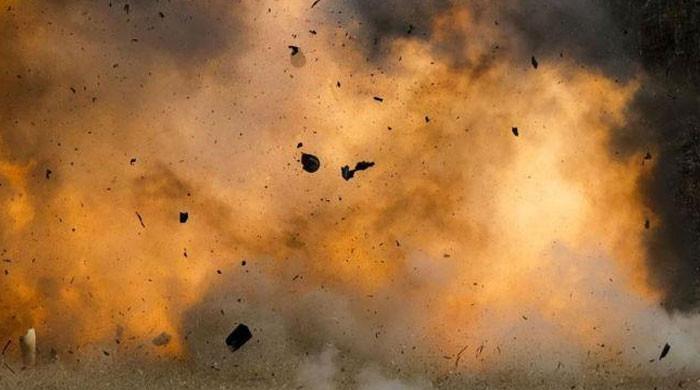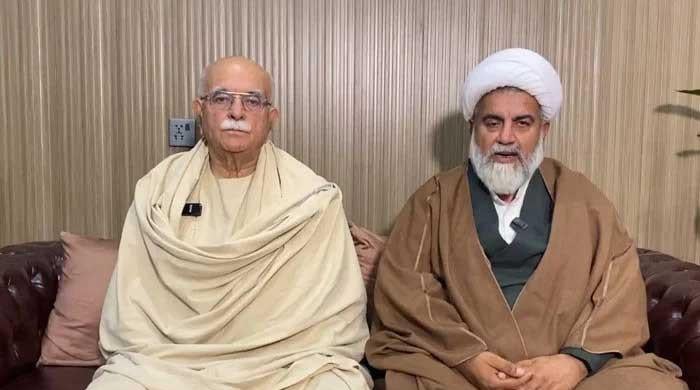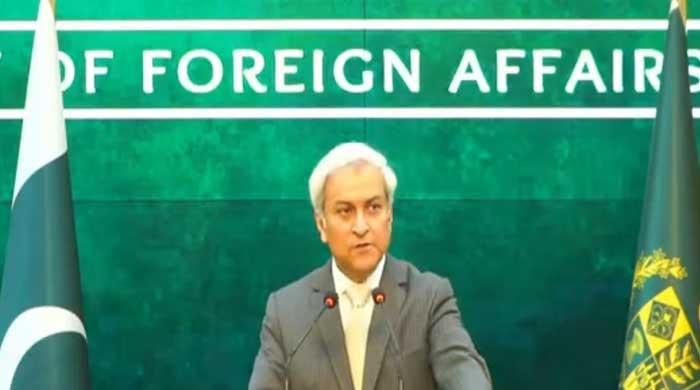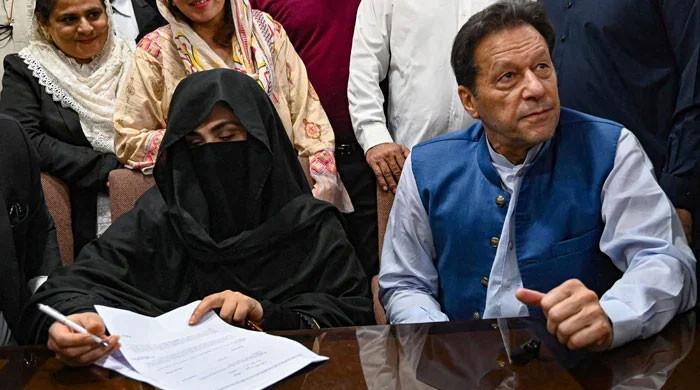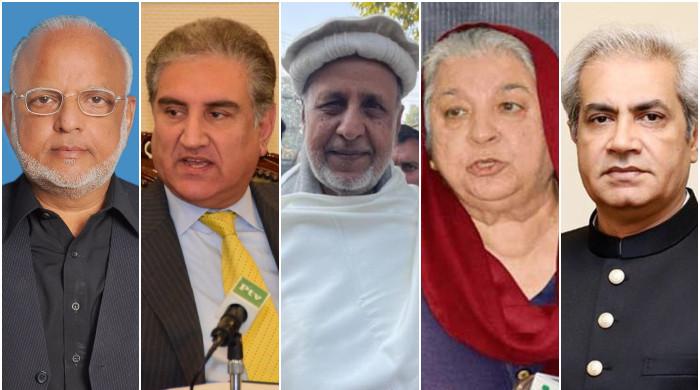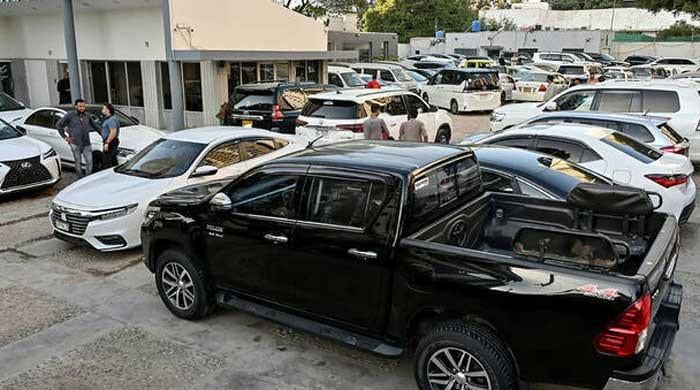One year after assassination, no justice for Arshad Sharif
Kenyan police personnel involved in Arshad Sharif’s assassination have quietly returned to their jobs a year on
October 22, 2023
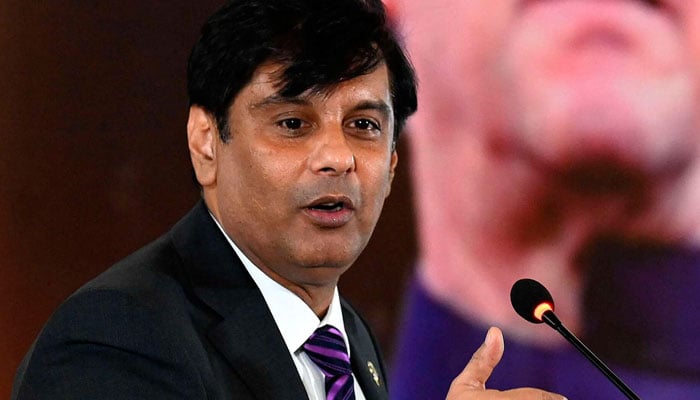
LAHORE/KENYA: Kenya’s President Dr William Ruto held a number of meetings in regard to the death of journalist Arshad Sharif but he has been met with a wall of silence and unable to do anything to bring Pakistani journalist’s killers to justice, Geo News can now reveal.
Interviews held with various individuals mentioned in the incident which saw Pakistan lose one of its most celebrated journalists now revealed that President Ruto was out to know what had transpired but his efforts have yielded no progress, according to sources who have shared credible information with these publications. The senior journalist was assassinated on 23rd October in a remote area, three hours from Kenya’s capital.
President Ruto also took notice of an investigation published here on August 30th that the five Kenyan police officers, who were involved in the killing of Arshad Sharif, have quietly resumed their official duties without any action being taken against them. After The News published its story, the president made inquiries with the police but that has not led to any progress, said an authoritative source.
A year after the killing of Sharif, the five police officers involved in the brutal killing are enjoying full police perks and their suspensions have turned out to be only a whitewash by the Kenyan authorities.
Douglas Wainaina, a businessman who had reported that his vehicle was missing, said that he held a series of meetings where he met the Head of State, the Director of Criminal Investigations Mohamed Amin and the National Police Service Boss Japheth Koome as part of the investigation.
He said: “I have met with the President who wanted to find out what had happened, I also met with Mr Koome and the DCI boss and informed them [of] my side of the story.”
He said that a number of people judged him when it emerged that he had made a report that his car was missing leading to the events that took place on October 23, 2022.
Wainaina reported at the Pangani Police Station that his vehicle had been stolen in the Ngara area.
His vehicle was a Mercedes Benz with registration number KDJ 700F while the one in which Sharif was being driven was a Toyota Landcruiser with registration number KDG200M.
Wainaina reported that his vehicle went missing and he suspected that someone had kidnapped his son.
As he was making the report at Pangani Police Station, Sharif was attending a party at Ammodump Kwenia in Kajiado County which was organised by Waqar Ahmed alongside US soldiers.
On the same day, Sharif was to leave alongside Khurram Ahmed, the brother of Waqar. The two brothers were his host in Kenya where the celebrated investigative journalist had decided to flee to.
Later that night, Khuram and Sharif left the joint. They were headed to Nairobi which is the capital city of Kenya.
However, their journey was cut short after they met a roadblock which was being manned by officers attached to the General Service Unit (GSU).
A shootout ensued and in the process, Sharif was shot dead several times while the driver survived unharmed.
It is then that Khurram informed his brother that the journalist had been shot dead. However, by the time he arrived where the vehicle had stopped, Sharif had already died and his body was taken to the City Mortuary.
Wainaina says that it was difficult to get his vehicle from the police station and that police officers really frustrated him.
He said that he even informed the court that he had forgiven his son but no one could hear any of it.
Javeria Siddique, the widow of Sharif, has filed a lawsuit against the GSU whom she accused of ending the life of her husband.
According to a copy of the petition obtained by The News, Javeria Siddique has been joined in filing the petition by Kenya Union of Journalists and Kenya Correspondents Association and the respondents are Kenya's Attorney General, the National Police Service, Inspector General of the Nation Police Services, Independent Policing Oversight Authority, International Police Service Commission and the Director of Public Prosecutions. She has demanded to "punish and prosecute the police officers who killed Arshad Sharif."
Javeria Siddique’s lawsuit includes a demand for a public apology, along with an acknowledgement of the facts and an acceptance of responsibility to the family of Arshad Sharif, to be issued by the Attorney General within seven days of the court's order.
Javeria Siddique has told Geo News she has no doubt that her husband's killing was a targeted assassination as he had left Pakistan after receiving threats in Pakistan. She has also appealed to the United Nations to take action and intervene in order to get the family justice.
The lawsuit says: “This petition concerns the unlawful killing of Arshad Sharif by Kenya Police officers at Kajiado on 23rd October 2022 and the respondents’ consequent failure to investigate thus compounding the violation of his right to life under Article 26 of the Constitution of Kenya, 2010. As the matter concerns the loss of the right to life, it's urgent.”
A year on from Arshad’s killing Kenya’s Independent Policing and Oversight Authority (IPOA), the body that is tasked with investigating the conduct of police officers, despite making a promise to give an update on Arshad Sharif’s murder within weeks, has not made its findings public in over nine months.
It is worth noting that IPOA had already handed over its file to the office of the Director of Public Prosecution (DPP) but it was returned and they were asked to fill some gaps before the prosecution process kicks off. Investigations into the murder of Arshad Sharif seem to have gone silent in the East African country, according to our probe.
It has been established that Kevin Kimuyu Mutuku, a police officer attached to the General Service Unit (GSU) who was allegedly shot at the scene of the crime where Arshsf Sharif was killed, went back to work immediately after he was released from hospital. He had claimed that he suffered a gunshot when bullets were fired from inside Arshad Sharif’s vehicle but the forensic investigation showed he was lying.
Sharif had arrived in the Kenyan capital on August 20 and died on October 23. The 49-year-old journalist had fled Pakistan in August to avoid arrest after he was slapped with several cases including sedition charges over an interview with Shahbaz Gill, a former aide of Imran Khan. After reaching Kenya’s capital Nairobi, Sharif stayed at the Riverside penthouse of Karachi businessman Waqar Ahmad whose brother Khurram Ahmad was driving him when he was killed.
The celebrated journalist was being driven from Ammodump Kwenia training camp, a joint which is owned by Khuram Ahmad’s brother Waqar Ahmed.
Kenya’s Human Rights Commission member Martin Mavenjina said that the National Police Service in Kenya was not interested in investigating the matter. He said the investigation process had taken a lot of time which is the norm whenever the police are not interested in pursuing something to the end.





